- Philip Norman’s “letter” to Paul - May 2, 2016
- The Jets and The Beatles - April 25, 2016
- Lennon and McCartney On The Tonight Show, 1968 - April 20, 2016
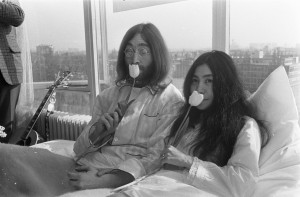
“Yoko, smell this flower! It’s like I’ve never even smelled flowers before!”
In 1969, Gerald Le Dain, a Canadian lawyer and Supreme Court Justice, headed a government commission on the “non-medical” use of cannabis and other drugs, with the ultimate aim to develop pertinent social policy. This commission, which ran from 1969 to 1972, was known as the LeDain Commission of Inquiry Into the Non-Medical Use of Drugs.
Le Dain sought input not only from medical, legal, and law enforcement sources, but also from well known celebs like our very own John Winston Lennon, who gave private testimony while on his honeymoon in Montreal.
Mr. Lennon and Pot: What do you think he said?
The backstory to obtaining John’s testimony is almost more interesting than the testimony itself. Back in 2002, a man by the name of John Whelan, working on behalf of the Ottawa Beatles Web site, was interested in obtaining John’s testimony file and tracked it down via the National Archives of Canada. When he discovered that all testimony files were confidential, he exercised his right under the Access to Information and Privacy Act to have it released. Because John was no longer alive and had been deceased for at least 20 years, Whelan was able to access John’s testimony file and with Health Canada’s permission, make it available to the public. Yoko’s testimony, on the other hand, will remain classified until her death and for 2o years thereafter. When you read the testimony you will see Yoko’s name and the all-too-familiar black magic marker a la Valerie Plame. All very cloak and dagger, don’t you think?
(p.s. The commission recommended that the government consider the controlled use of cannabis but that recommendation was largely ignored.)

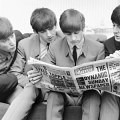

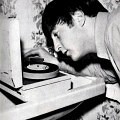
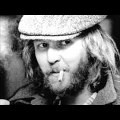
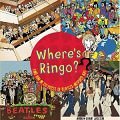
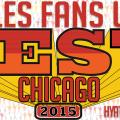
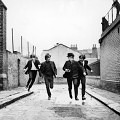

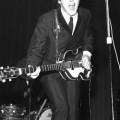
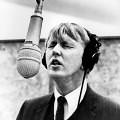
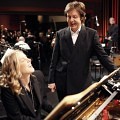

Great post, @Karen! Thank you.
Some interesting parts of the testimony:
“I certainly didn’t [believe government scare stories about drugs]. I had to find out, and some people can’t — some people cannot. The people are going to be — I believe the people that do get hooked on alcohol or anything else are weaker and liable to be hooked on whatever, because their problem is deeper…”
This reflects the typical countercultural belief that other kinds of addicts are somehow better than alcoholics. It’s this kind of romanticism that got Lennon to try heroin, and then get hooked on it. And maybe never get off it for the rest of his life. It’s rooted in the idea that alcohol is “your dumb old parents’ drug.”
…”and I think if more time was spent preventing people getting the –however they get it, if the Governments were as clever about preventing people getting arms for revolution as they are about keeping speed and H off the market, and cocaine, then there would be no problem, because if you can’t get it, the drugs go in and out of popularity, and the popularity of the drug goes with how much you can get. There’s a cocaine phase if cocaine’s loose. If there’s a big lot on the market, it lasts for a year or two then they clamp down on cocaine, but something is replaced, you get something else instead, so there’s always some hard drug available. You can always get it, but it goes in fashion, for people change from one drug to another as they get it.”
This is very interesting; not only does it make perfect sense, it also dovetails with stuff I’ve read suggesting that certain drugs were purposely fed into communities by agencies (often working off the books). There is an element — impossible to know how widespread it was, but we know it was being tried — of governmental manipulation of the counterculture via throttling back the availability of certain drugs and allowing free access to others. And one cannot read the story of, say, the Haight-Asbury, and not see how switching the drugs active in a micro-society fundamentally changes that society. It is the kernel of truth in the often-bogus government line that pot leads to acid and acid leads to heroin and heroin leads to death. The manipulation of the societal switch from the soft drugs and psychedelia of the ’64-’67 period, to the hard drugs/revolution one of ’68-’72 or so is the untold story of the Sixties. But it is never told, and never will be told, because neither side wants it told.
“Are we sitting at home just smoking pot in a den of iniquity — an opium den, which is a different — that’s what people imagine is going on, but, of course, where did all the underground newspapers spring from? Where did the energy source to start the whole communication change — where does the music come from? Where does the power and the — where did we get our energy? We certainly don’t get it from pot and we certainly don’t get it from alcohol. It’s made no difference into the energy power I have as an individual and to the amount of work I do. Now, I do more work — we both do more work than ever, but it has nothing to do with drugs.”
This interests me because it reflects Lennon’s biochemistry as of 1969, and how fundamentally different that was from 1973, or 1978. In 1969, he was consuming drugs AND working (as he had forever), but by 1973 he apparently couldn’t drink without becoming violent (Lost Weekend); and by 1978 he was exactly “smoking pot in a den of iniquity” — and harming nobody but himself, but it was a change. I’d be interested to hear if anybody has an idea about this change, because it’s marked. It’s as marked as a young man who can drink and function, and an older man who drinks and is a drunk.
“We don’t believe it’s Nixon, or America’s fault for the war in Viet Nam.”
OK, now we’re into the “Year of Peace” talking points — the pleasant stuff that falls apart the moment you ask how it might actually be implemented.
“How you sell pot to the Government is to tell them how much they’re going to make out of it. We (inaudible) save Britain from (inaudible) that. It may sound simple, but that’s where it is. When the machine understands that it can make money from it, that’s all it wants to know —
YOKO ONO: [redacted]
“Right. The money made out of the country — the country that legalizes pot — we had an answer to Britain’s problem, ha ha. It was to legalize pot and let homosexuals marry and Britain would be the richest nation on earth. It’s as simple as that. Why not? What the hell are we pretending about?”
And here we have Lennon being prescient and sensible, which is what makes the post-Yoko Lennon so goddamn frustrating. He’s still razor-sharp at times, and always brave, but the moment he stops speaking from his own lived experience, and heads off into concepts, it becomes nice-sounding nonsense.
“You want to help [your parent]. It’s like have a sick child in the house. You don’t kick him out. You have to take that responsibility. He’s your parent and that’s all it is. Once a kid sees his parent for what he is he’s got the choice of either laughing at him and saying, “Well, you stupid fool”, you know, “You got caught and I won’t”, or having some compassion for him, because you do have the bond with your parent whether you like it or not. You’re stuck with it.”
This is interesting, given Lennon’s history with Fred Lennon.
“We have to talk to China. You can’t have the paranoiac person like China in your midst carrying a gun and just try and block him off. Especially when he’s so big, and it’s only our fear that makes him more fearful.”
Well that, and Mao’s insanity. Lennon did not understand the nature of totalitarian societies, which is kinda interesting, because he was one of the few non-insane people who’d actually felt mass adulation on the order of a Mao Zedong. But it’s interesting that the moment Mao died, world history unspooled just as Lennon predicted.
“I think, first of all when you say marijuana leads to H, it’s like saying beer leads to alcoholism.”
Sensible. But wasn’t Lennon hooked on heroin even as he spoke? He said he was clean for the Bed-Ins, but how likely is that? Addicted before, and addicted after, but clean then? Someone who knows more please enlighten.
“So I prefer not to use any drug. Now and then I use pot, because I need it just to relax or whatever it is; so why do we need it?”
OK, now I know he’s telling tales. 🙂
Wise and foolish; perceptive and benighted — the man confounds me.
“I stopped using it because it did burn my head off”
I don’t think I’ve ever heard him speak so frankly about his LSD use, and he said a great deal about it.
I noticed that, too, @King. I suspect that John had a lot of interesting, perceptive, and much less sanguine things to say about his life/experiences in non-public settings. The interesting thing is that, whenever he did put himself in therapeutic settings, like Primal Scream, they worked well for him. He was a natural candidate for all sorts of therapy. Lennon in Jungian analysis (like Fellini), would’ve been an amazing journey.
Also, who knows if it was the LSD, or the LSD-STP-synthetic DMT-etc.? The other thing that’s interesting about Lennon and psychedelics is how committed he was to them. He mentions that he’d had bad trips and went back again and again. It’s like something I read online once: “The first fifty times I smoked pot, it gave me terrible anxiety…”
The take-away for me was that John was reserved and cautious about drug use–even down-right sensible. There’s such a disconnect between that and his actual behaviour that, to me, it further reinforces the role his wife played in his addiction.
.
@Michael–I interpreted John’s comment re “I believe the people that do get hooked on alcohol or anything else are weaker”…. differently. The “alcohol or anything else”, to me, included drug us. I thought he included himself in that category.
That should read “….included drug use.” Dang this font.
(Michael–did I read somewhere around here that you’re changing the theme? I am PRAYING for a different font come New Years!)